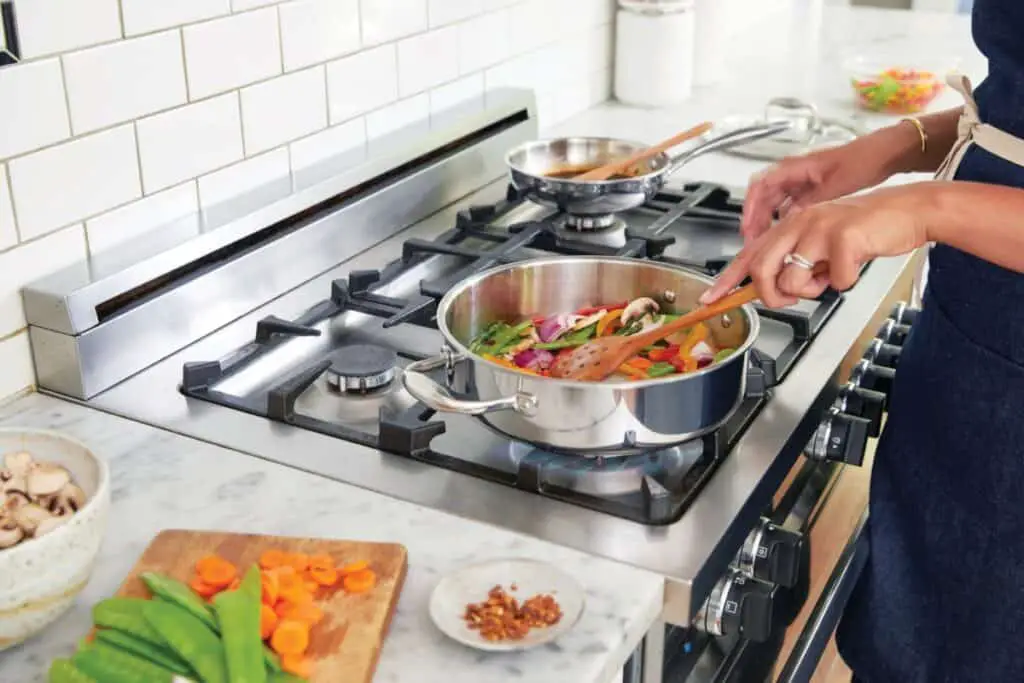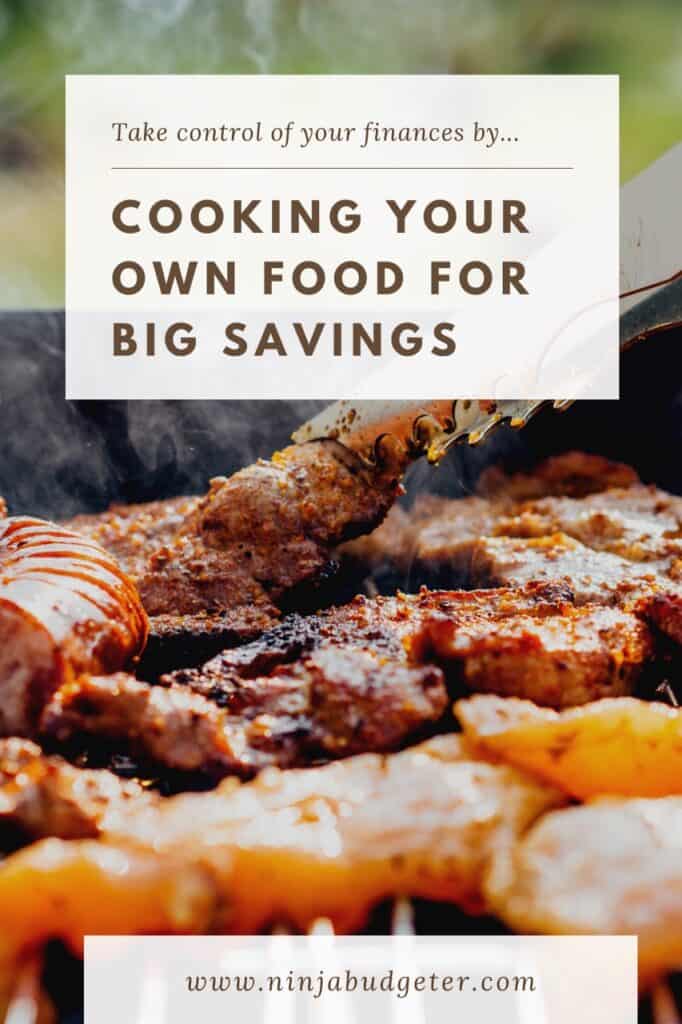Table of Contents
Why Everyone Should Cook
This should be a no brainer and probably shouldn’t need so much attention but unfortunately, it does. This is arguably the simplest and most implementable of all the saving strategies. However, the population of the United States continues to cook less, eat out more, and overspend on food as a whole, and the problem is only getting worse.
Wouldn’t you rather cook your own food rather than eat out when you really think about it? You can make the food exactly to your liking. Whenever you decide to go big you can buy and cook your own steak to perfection if that’s your type of thing. You still get to indulge in a delicious prime cut of steak and at a fraction of the cost that even a low-end steakhouse would charge you, and with a much greater level of flexibility.
If you’re a vegetarian or vegan, have falafel balls on tap, you can make a bunch and save them so you can enjoy them any time you want! Not only are they available at any time of day, but portions also aren’t limited! You can take as many or few as you want, compared to being stuck with a fixed portion when eating out. If you’re trying to be a hardcore saver like the people over at ERE, start with the old-time classic of college students and minimum wage earners alike and make some rice and beans. Then once you get bored, branch out and experiment. Try seasoning your rice with cinnamon and milk and you get a whole different texture and flavor from your typical rice dish.
Related Article: 35 Cheap And Easy Meal Prep Recipes For Every Meal
Improving Your Life Through Cooking
The small amount of extra effort it takes to make your own food provides all of the above and more. Cooking can also be rewarding in that it provides a hobby that many people across the world enjoy. You can even turn it into a competition with your friends. Good food is always better when eating with others after all. Try trading off in your friend group with each person cooking once a week for the others. You will only have to cook every month or two, and there really isn’t too much more work cooking for 10 than there is for one. That’s the beauty of economies of scale!
Additionally, cooking provides a higher quality meal without as many preservatives as you would consume in a restaurant. Your produce will typically be better than restaurants’. You can choose organic or non-GMO ingredients if that’s your thing. Vegetarians never have to worry about finding something that meets their restrictions on the menu. Integrating health goals becomes easier as well. You’d be amazed at the amount of butter and salt restaurants use to make lower quality ingredients taste okay.
Here is the benefit everyone really came to read. Cooking your own food has real post-tax savings that add up quickly. You’re already putting in long hard hours at your job, which many people use as an argument not to cook. Why not flip the argument though? By cooking for yourself you’re actually reducing the time you need to work to support yourself. Take the extra time to cook your food, it’s less stressful. The money saved will allow you to quit your job sooner than if you hadn’t.
Cooking by the Numbers
To get an idea of how much you can save, try following this simple process. Look through your previous month’s credit card statement for all the times you ate out. Tally the number of times you went and add up the total cost. Then estimate how much similar meals to the ones you get at restaurants cost to cook. For myself, I found that eating out cost me on average $15 a meal, way more than I would have guessed. (Tax and tip sneak up on you!) the average cost of similar meals at home was roughly $5. Subtract the two numbers and multiply by your tally to see what monthly savings would look like. Another observation I had is that the nicer the meals the bigger the savings were. A 12 oz steak with a baked potato and sauteed broccoli cost me $27 at longhorn steakhouse all said and done, but the equivalent cost to cook it was only $8!
If you’ve never cooked for yourself past stouffer’s pizza and mac n cheese in college, don’t just wing it. Chances are you’re going to mess it up and throw everything you worked on away. Instead, try searching the web for recipes so your ratios of ingredients make sense. If you’re too lazy to do even that, check out mealprepify . They pull well-vetted recipes together into one location. Start with something simple, and build up to fancier recipes, or try adding an extra ingredient each time to make the recipe your own.
Sustaining Your Cooking Plan
One word of warning though: buying groceries for a week or longer takes actual thought and planning. If you don’t know where to start but want to dive in take a deep breath. Your first instinct is probably to just start grabbing things that look good off the shelf. If you do this you’ll most likely experience a high level of waste on your perishable items. Start small and try a couple of small trips to the store each week. In this way, you can start to get a feel for your consumption rate. From here you can build up.
If you want to go straight to cooking like the pros, keep a stock of nonperishable essentials such as dry spices and olive oil in your kitchen at all times. Then, before you go shopping each week, layout all the meals you want to cook and whether or not you’re making extra to store for leftovers. Finally, go through the recipes for each meal, creating a grocery list as you go. If you’re a 300 IQ planner, you can put the meals that contain the perishable items that go bad the fastest at the beginning of the week, and freeze your bread and meat that won’t be used until later in the week to preserve freshness.
Another potential option is to use a meal prep app. They break down your meals into ingredients you can shop for, allow you to schedule your week, and save favorites so you can reuse recipes you like!
- The Importance of a Cash Cushion - August 25, 2021
- Money is Just a Game (Money Mindset) - August 14, 2021
- Low-Cost ETFs: An Explainer - August 8, 2021


